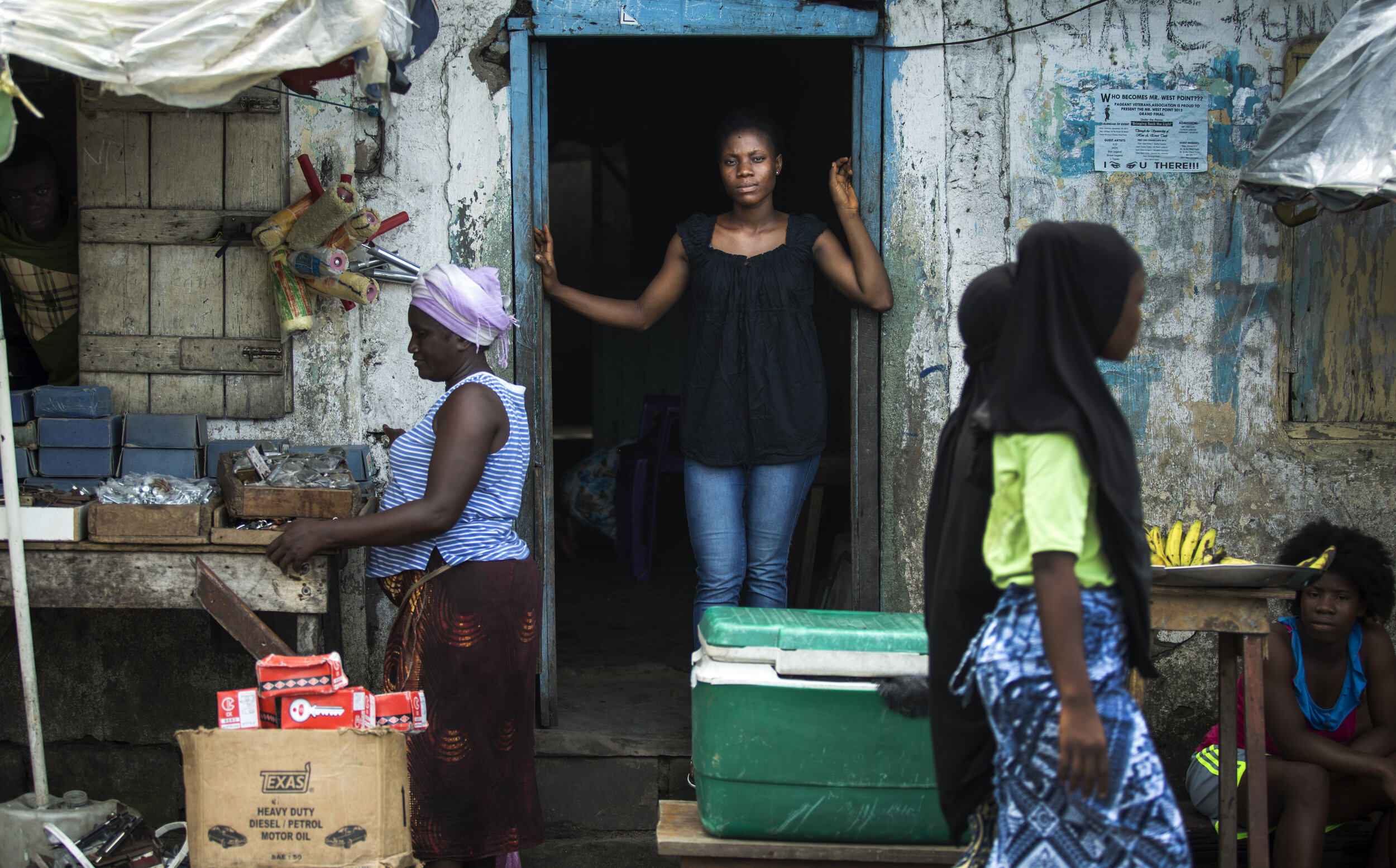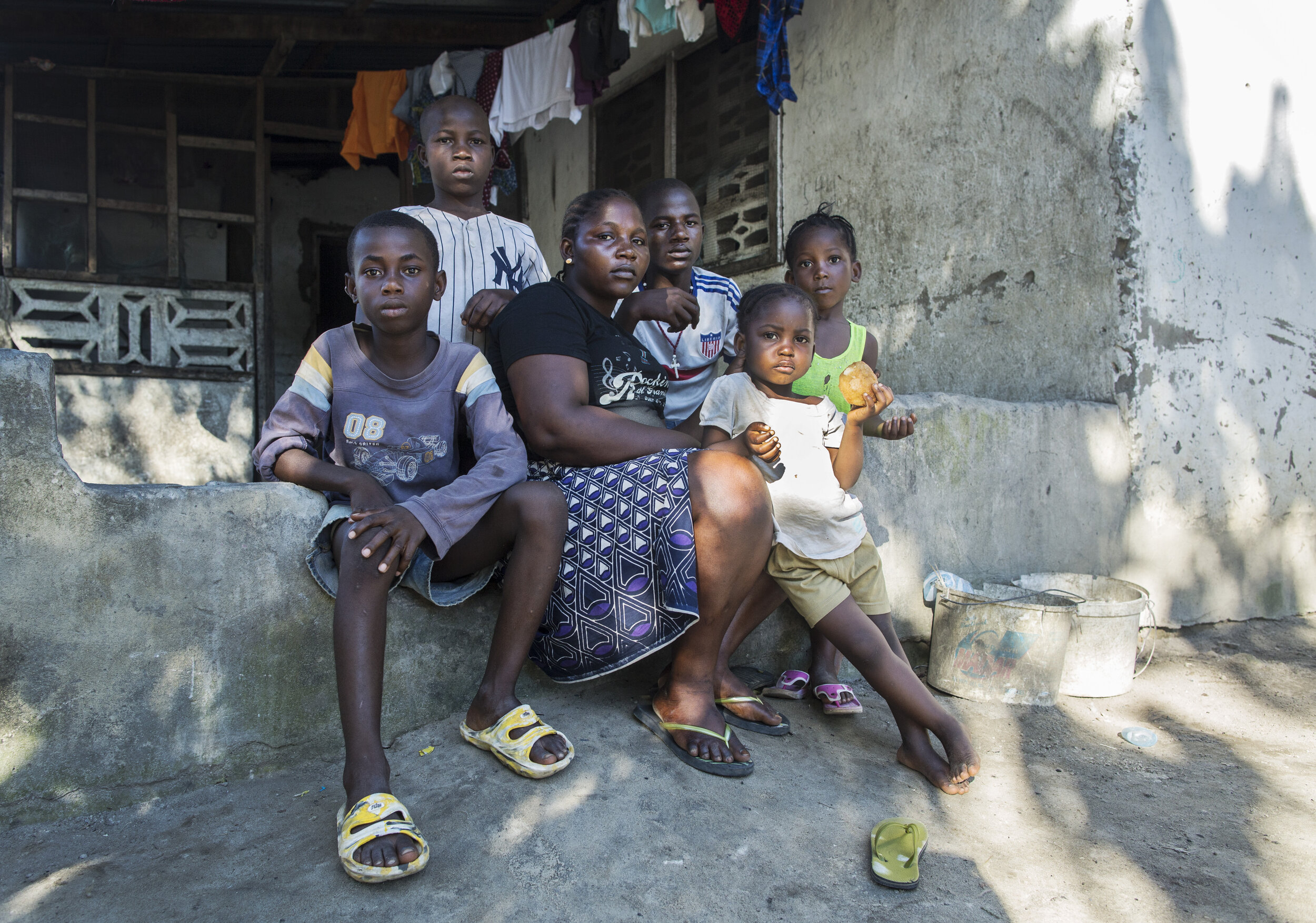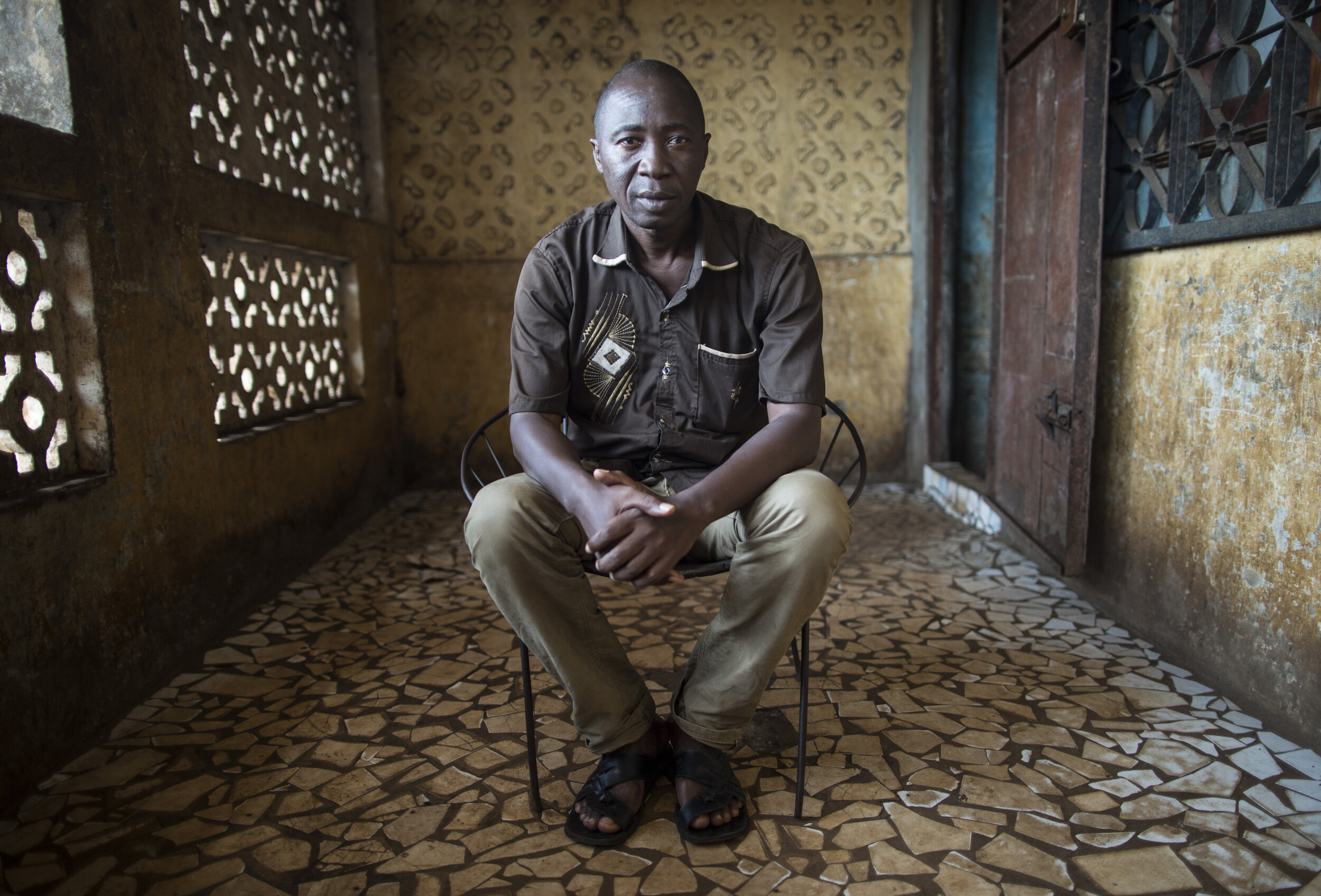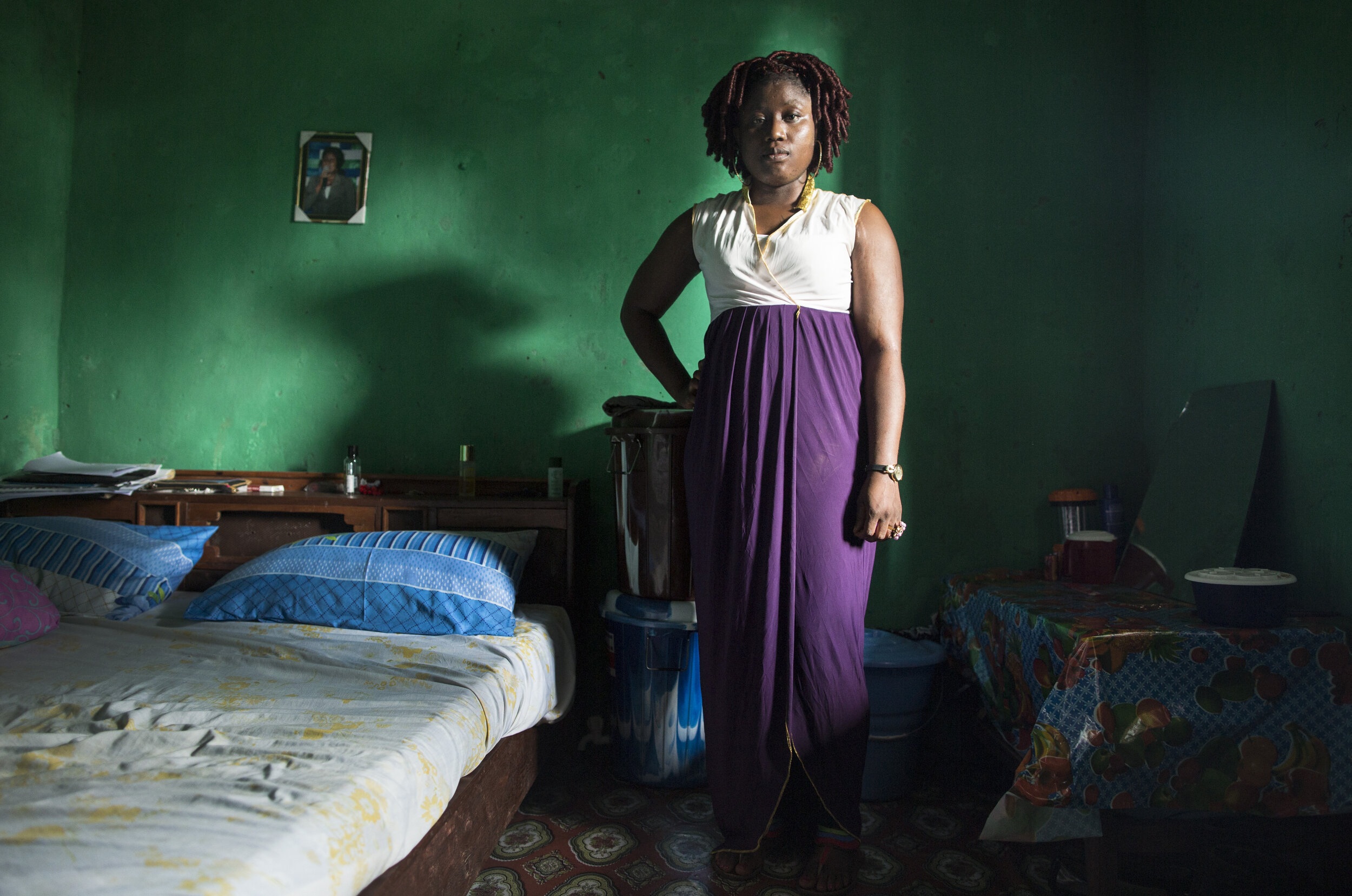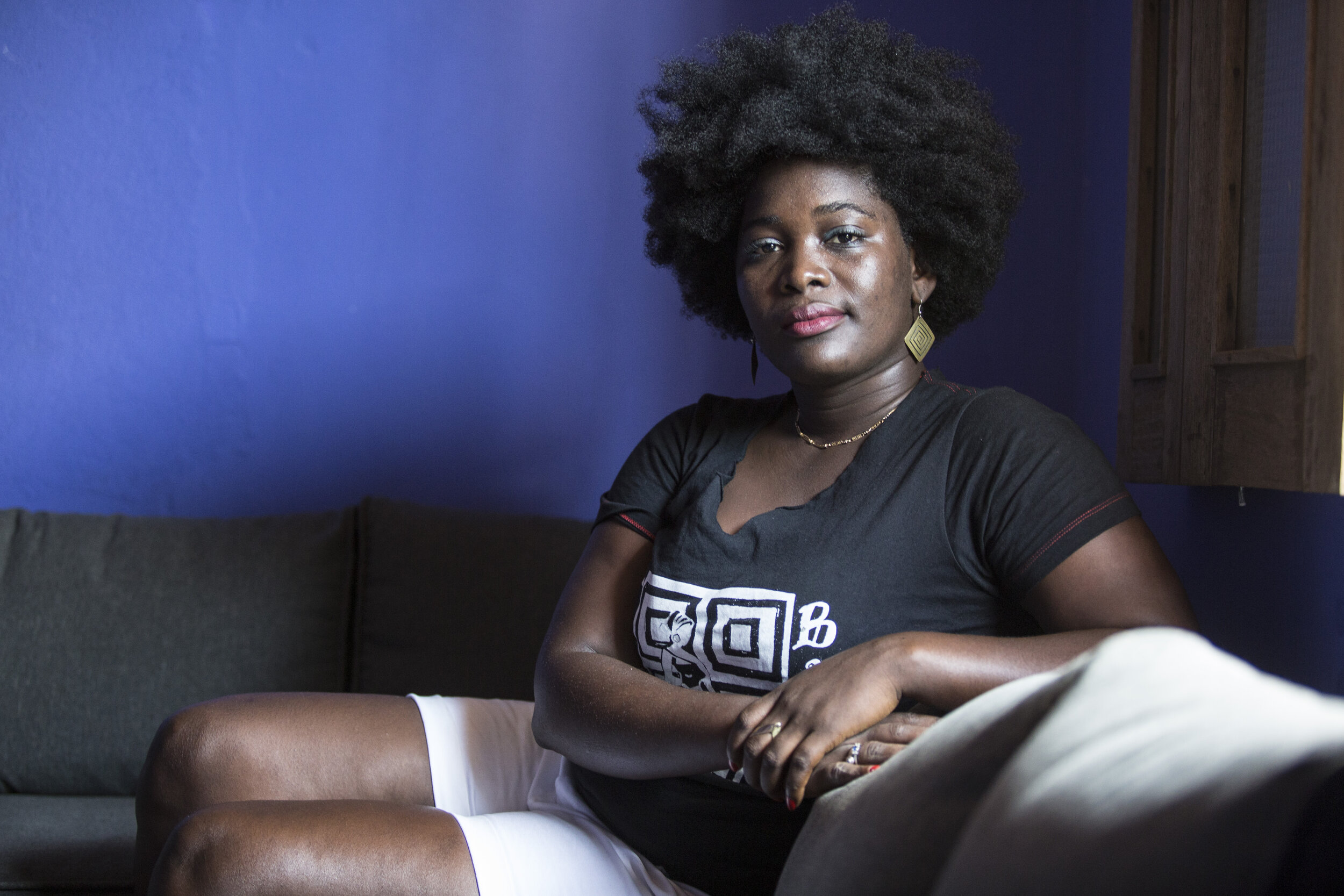REFLECTIONS ON EBOLA
As Ebola subsided in West Africa, those who lived through the epidemic were left to come to terms with the effect it had on their lives, loved ones and their country. The disease impacted the impoverished as well as the wealthy. The elderly as well the newly born. This portrait series tells the stories of individuals from Guinea, Sierra Leone and Liberia - all of whom experienced the severity of the worst Ebola outbreak in history. to date.
View photo essay in The Guardian
Fanny Mae Koroma| Sierra Leone
“The rules of Ebola, like not touching, went against our traditions. We had to tell people that running away or
keeping secrets in the house was not going to help end Ebola. What helped was having a local person talk to the communities.
They trusted me, and they knewI wouldn’t hurt them. There was no trust in the health system before, but now people
understand about hygiene practices like washing hands. I hope that stays with people.”
Elhadj Cheikhouna Sylla, Imam | Guinea
“I was taken to a treatment centre to see people who were sick and that strengthened my belief in Ebola’s existence. I knew I had an important role to play in the community and I gave more 20 speeches in the mosque to convince people about Ebola. When there was a case in the community, I’d talk to the family about taking the person to the treatment center or having a safe burial if the person had died. Ebola has affected the way we live together, and my hope is that there is more peace in the country.”
Isata Mansaray, Ebola Survivor
Sierra Leone
“When I was released from the (Ebola) treatment center, I was told that my parents had gone to America, but later my uncle admitted to me that they had died.
When they were alive, they were able to give me everything I needed — I was able to get my hair done.
But I don’t feel too sad now because my grandmother is looking after me. A social worker comes and plays with me and asks how I’m doing.
I want to be a bank manager so I can take care of my family, especially my grandma.”
